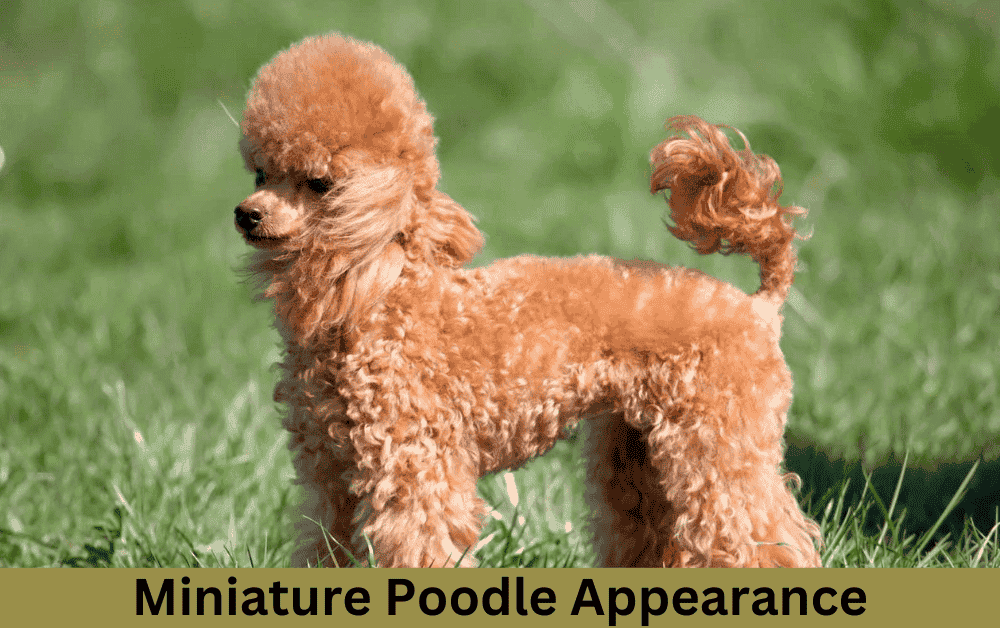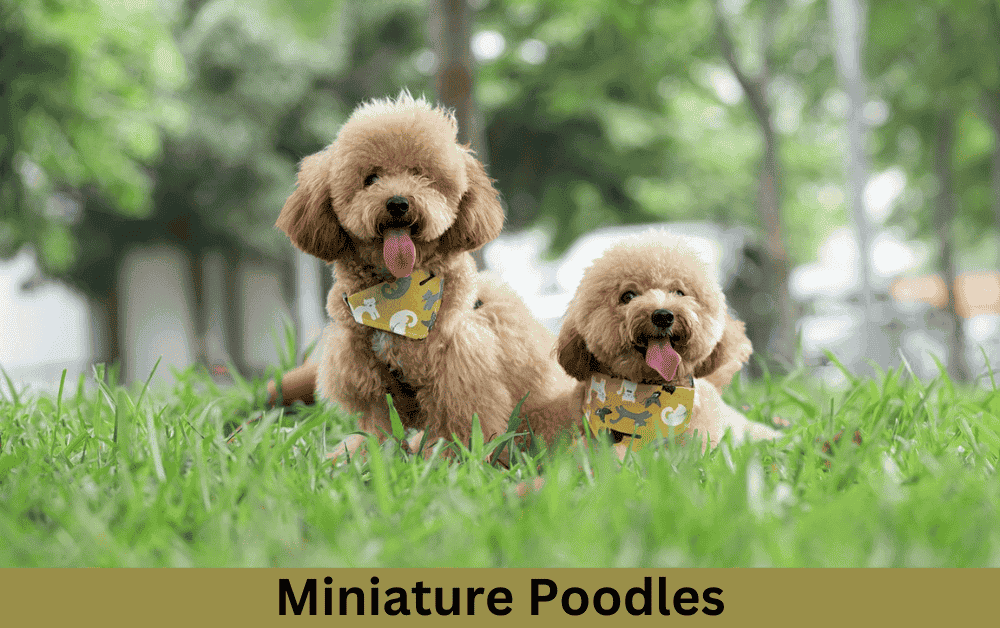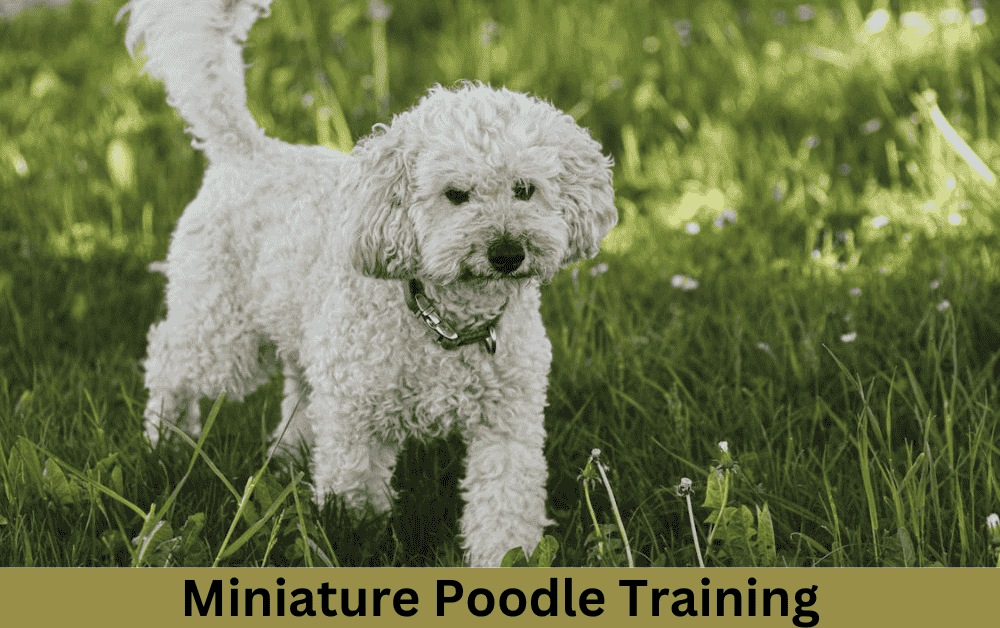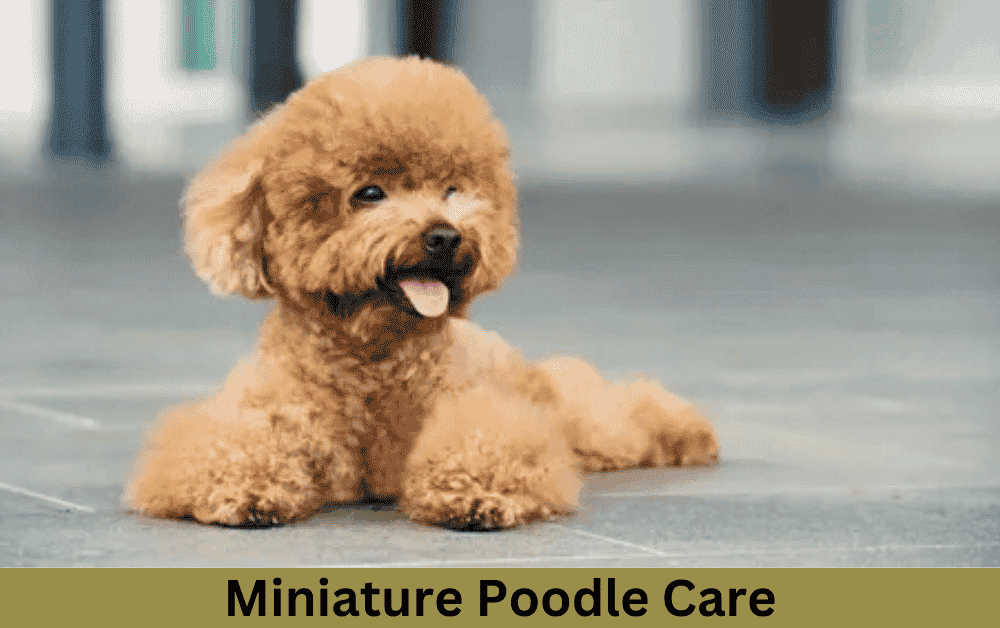Introduction
These dogs live long, healthy lives—often 12 to 15 years, which is longer than many small breeds. With good care, they stay playful and energetic even as they grow older. Miniature Poodle puppies adapt well to any home, whether it’s a cozy apartment or a big house. They need regular grooming, daily exercise, and fun activities to stay happy.
In this article, we’ll explore everything about Miniature Poodles—their history, personality, health needs, training tips, and how to care for them.
Miniature Table Quick Facts Table
| Category | Details |
|---|---|
| Origin | France/Germany (1400s–1700s); bred down from Standard Poodles for hunting. |
| Size | 10–15 inches tall, 10–15 lbs; square-shaped, agile body. |
| Coat | Hypoallergenic, curly, waterproof; 9 AKC-recognized colors (e.g., black, apricot). |
| Lifespan | 12–15 years (with proper care). |
| Temperament | Intelligent (#2 smartest breed), affectionate, playful, sensitive to harsh training. |
| Exercise Needs | Daily walks + mental stimulation (games, tricks). |
| Grooming | Brush daily, professionally trim every 4–6 weeks; bathe monthly. |
| Health Risks | Hip dysplasia, epilepsy, PRA, ear infections, and dental issues. |
| Training | Learns quickly; thrives on positive reinforcement. Early socialization is key. |
| Popularity | Top 10 U.S. breed; AKC-recognized. |
| Best For | Families, apartments, active owners; not suited for long solitude. |
History of Miniature Poodles
Miniature Poodle dogs first appeared in France and Germany around the 1400s–1700s. Breeders downsized Standard Poodles (originally 15+ inches tall) to create compact, 10–15-inch dogs that could still hunt waterfowl and fit in homes.
These dogs excelled as water retrievers—their curly, waterproof coats and webbed paws helped them fetch ducks from lakes. Hunters loved them because they could work in cold water for hours.
By the 1800s, their intelligence (the #2 smartest dog breed after Border Collies) and friendly nature made them top family pets. Circus trainers also prized them for learning tricks 30% faster than average dogs. Today, Miniature Poodles rank among the top 10 most popular dog breeds in the U.S. and are allowed in dog shows by the American Kennel Club.
.
Miniature Poodle Vs Standard Poodle: Comparison Table
| Feature | Miniature Poodle | Standard Poodle |
| Height | 10-15 inches | Over 15 inches (usually 22-27″) |
| Weight | 10-15 lbs | 45-70 lbs |
| Origin | Scaled-down Standards | Original hunting/water retrievers |
| Energy Level | High | Very High |
| Best For | Active singles/seniors | Active owners with space |
| AKC Recognition | Yes (Non-Sporting) | Yes (Non-Sporting) |
| FCI Recognition | Yes | Yes |
Miniature Poodle Lifespan
Miniature Poodle dogs usually live 12 to 15 years, but good care can help them live even longer. Feed them high-quality food and watch their portions to prevent weight gain, which can harm their health. Take them for daily walks and play games to keep their body and mind active. Bring them to the vet regularly to catch health problems early. Brush their teeth, groom their coat, and give them a calm home to reduce stress. With the right care, these smart, lively dogs can stay by your side for many happy years.
Physical Characteristics of Miniature Poodles

Miniature Poodles boast the perfect combination of brains and beauty in a compact 10-15 inch, 10-15 pound package. Their signature curly coats come in nine stunning colors that are recognized by the AKC. These colors range from classic black to rare apricot, with hair so dense it’s three times thicker than straight-coated breeds. Those expressive dark eyes that score 94% in “puppy dog appeal” tests peer out from under velvety ears that hang 2-3 inches long.
Miniature Poodle puppies have a square-shaped body (their height and length are equal). This isn’t just cute—it actually makes them 15% more agile than longer dogs. That’s why they win so many small dog contests. While traditionally docked, about 28% of U.S. owners now opt for natural tails. Their hypoallergenic coat works so well that 82% of mild allergy sufferers live symptom-free with these clever canines. Every inch of their design combines form and function, from water-resistant curls to webbed feet left over from their duck-hunting days.
Miniature Poodle Temperament and Personality
Miniature Poodles are one of the smartest and most affectionate dog breeds. They form strong bonds with their families and enjoy playing with children and other pets. Their intelligence and eagerness to please make them easy to train, and they often excel in obedience competitions.
These dogs are also very alert and will bark to let you know if something seems wrong, making them great watchdogs. However, they have a sensitive side, so harsh scolding or punishment does not work well with them. Instead, they learn best with positive reinforcement—rewarding good behavior with treats, praise, or playtime.
Since Miniature Poodle puppies love being around people, they can become anxious or lonely if left alone for too long. They thrive in homes where someone can spend time with them regularly.
Owner Experience
Adam, a Miniature Poodle owner from New York, shares, “My Miniature Poodle, Coco, is incredibly smart—she learned commands like ‘sit’ and ‘stay’ in just a few days! She’s also very loving and follows me around the house. The only challenge is that she doesn’t like being alone, so I make sure someone is always with her.”
If you want a clever, loyal, and lively companion, a Miniature Poodle could be the perfect fit—just be ready to give them plenty of love and attention.
Miniature Poodle Health

Miniature Poodles are generally healthy dogs, but they are prone to certain health issues. Regular vet check-ups, a balanced diet, and daily exercise help keep them in good condition. Some common health problems include hip dysplasia, epilepsy, and progressive retinal atrophy, which can lead to blindness. They are also prone to ear infections due to their floppy ears, so regular ear cleaning is necessary.
Common health concerns:
- Hip Dysplasia: A genetic condition that affects the hip joint, leading to pain and mobility issues.
- Progressive Retinal Atrophy (PRA): A degenerative eye disease that can result in blindness.
- Epilepsy: A neurological disorder that causes seizures.
- Ear Infections: Due to their floppy ears, moisture can get trapped, leading to infections.
- Dental Issues: Regular brushing and dental check-ups help prevent gum disease.
- Allergies: Miniature Poodles can suffer from food or environmental allergies
Miniature Poodle Training and Socialization

Training a Miniature Poodle is easy because they are highly intelligent and eager to please. They respond well to positive reinforcement, such as treats, praise, and playtime. Poodle potty training should start early to establish good behaviors and prevent bad habits.
Socialization is just as important as obedience training. Exposing a Miniature Poodle to different people, animals, and environments helps them grow into well-adjusted adults. Without proper socialization, they can become shy or anxious around strangers. A confident and happy dog results from consistent training and social experiences.
Key training and socialization tips:
- Start early: Begin training and socialization as soon as you bring your puppy home.
- Use positive reinforcement: Reward good behavior with treats and praise.
- Expose them to new experiences: Introduce different sights, sounds, and people.
- Teach basic commands: Focus on commands like sit, stay, and come.
- Enroll in puppy classes: Group training helps improve social skills.
- Be patient and consistent: Repetition and routine help reinforce learning.
Miniature Poodle Grooming and Care

Miniature Poodles require regular care to stay healthy and happy. Their curly coats need frequent grooming to prevent matting and tangles. Bathing should be done every few weeks, along with regular brushing to keep their fur clean and soft. Professional grooming every 4 to 6 weeks helps maintain the coat’s appearance and health.
Exercise is also essential. These dogs have high energy levels and enjoy activities like walking, running, and playing fetch. Regular exercise keeps them fit and prevents boredom, which can lead to destructive behavior. A balanced diet is equally important for maintaining a healthy weight and avoiding common health issues.
Key care and maintenance tips:
- Brush their coat daily to prevent tangles and mats.
- Schedule professional grooming every 4 to 6 weeks.
- Bathe them every 3 to 4 weeks to keep their coat clean.
- Provide daily exercise with walks, playtime, or agility training.
- Feed high-quality dog food suited to their size and energy level.
- Brush their teeth regularly to prevent dental issues.
- Keep their ears clean and dry to avoid infections.
- Trim their nails every few weeks to prevent overgrowth and discomfort.
Common Misconceptions About Miniature Poodle
There are many myths about Miniature Poodles that can be misleading. Here are some common misconceptions:
- Poodles are just fancy lap dogs. While they look elegant, Miniature Poodles are active dogs that need plenty of exercise and mental stimulation.
- They are high-maintenance. Although they require regular grooming, they do not shed much and are relatively easy to care for with proper routines.
- Miniature Poodles are fragile. Despite their small size, they are sturdy, energetic, and capable of engaging in various physical activities.
- They are not good with kids. Miniature Poodles are great family pets when properly socialized and trained.
- They are only for wealthy owners. While professional grooming can be expensive, their overall care is similar to other dog breeds.
How is it to live with a Miniature Poodle?
Miniature Poodle puppies adapt well to different living environments. They are small enough to live comfortably in apartments but also enjoy larger homes with yards. Their playful and social nature makes them great companions for families with children. However, young kids should be taught how to handle them gently to avoid accidental injuries. Miniature Poodles also get along well with other pets, especially if they are introduced early.
These dogs need daily interaction and do not like being left alone for too long. They thrive in active households where they receive regular mental and physical stimulation. Miniature Poodles also love being involved in family activities, whether it’s playing fetch, going for walks, or cuddling on the couch. Potential owners should be prepared to spend time training, grooming, and exercising them to keep them happy.
Choosing a Miniature Poodle
If you are considering getting a Miniature Poodle, it is important to find a responsible breeder or consider adoption. Reputable breeders perform health screenings to ensure their puppies are free from genetic diseases. Ask for health clearances and visit the breeder’s facility to see the puppies’ living conditions.
Adopting from a rescue or shelter is another great option. Many Miniature Poodles need loving homes, and adoption is often more affordable than buying from a breeder. When choosing a puppy or adult dog, look for signs of good health, such as clear eyes, a shiny coat, and a playful attitude. Be prepared for the costs of food, miniature poodle grooming, vet care, and training.
Conclusion
Miniature Poodles are intelligent, affectionate, and adaptable dogs that make wonderful companions. They fit well into various living environments, are great with families, and are easy to train. Miniature poodles can live long, happy lives with grooming, training, and healthcare. If you are looking for a loyal and loving pet, a Miniature Poodle could be the perfect choice. Whether you adopt from a shelter or buy from a breeder, owning one of these amazing dogs is a rewarding experience.
FAQs About Miniature Poodles
Are Miniature Poodles really hypoallergenic?
Miniature Poodles are one of the best breeds for people with allergies. Their curly coats trap hair and dander, which helps reduce allergens in the air. However, no dog is 100% hypoallergenic. Some people may still have mild reactions. Regular grooming and cleaning can help control allergens.
What health problems do Miniature Poodles have?
Miniature Poodles can have joint issues like patellar luxation and hip dysplasia. Some also develop digestive problems or sensitive stomachs. Eye diseases, such as progressive retinal atrophy, can lead to blindness. They often get ear infections because of their floppy ears. Regular vet check-ups help prevent serious issues.
Do Miniature Poodles get along with other pets?
Yes, Miniature Poodles are friendly and can live with other pets. Early socialization helps them feel comfortable around dogs and cats. They enjoy playing and often form close bonds with other animals. Some may be shy at first but warm up over time. Proper introductions make things easier.
How much exercise does a Miniature Poodle need?
Miniature Poodles are active dogs and need daily walks or playtime. A 30-60 minute walk plus some indoor games keeps them happy. They also love fetching, agility training, and puzzle toys. Without enough activity, they may get bored and misbehave. Regular exercise keeps them healthy and well-behaved.
What kind of food should a Miniature Poodle eat?
Miniature Poodles need a high-quality diet with protein, healthy fats, and fiber. Some have sensitive stomachs, so avoid foods with fillers and artificial ingredients. Feed them two small meals a day instead of one big meal. Always provide fresh water. Ask your vet for the best food options.
When does a Miniature Poodle become an adult?
Miniature Poodles reach full size by 12 months. Their weight stays between 10-15 pounds, and they stop growing taller. Their behavior may still mature after their first year. Training and socialization continue to shape their personality. They stay playful and energetic for many years.
Is a Miniature Poodle good for first-time dog owners?
Yes! Miniature Poodles are smart, loving, and easy to train. They learn commands quickly and enjoy spending time with their owners. However, they need regular grooming and exercise. First-time owners should be ready for daily care. With proper attention, they make amazing companions.

